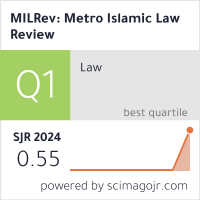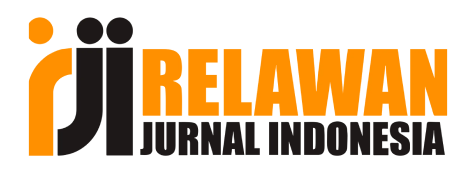The Evolving Role of Sustainable Development in Shaping Political Progress: A Contemporary Islamic Perspective on Human Rights and Civil Institution
DOI:
https://doi.org/10.32332/milrev.v4i1.10128Keywords:
Civil State Institutions, Human Rights, Political Development, Social System, Sustainable Development.Abstract
The article examines the role of sustainable development in advancing political development from a contemporary Islamic perspective, focusing on how the principles of human rights align with the functions of civil state institutions. The research explores how sustainable development initiatives, as outlined in the 2030 Agenda, resonate with Islamic values of justice, equity, and societal well-being. Employing a qualitative approach, this analysis draws on Islamic jurisprudential sources and international frameworks, such as the UN Sustainable Development Goals (SDGs) and the Universal Declaration of Human Rights, to highlight areas of alignment and divergence. Findings reveal that sustainable development can be a foundation for political development within a contemporary Islamic framework by supporting governance structures rooted in justice, accountability, and community welfare. Political development within an Islamic context refers to the evolution of governance structures that integrate justice ('Adl), equity (Qist), and accountability (Mas'uliyyah) as foundational principles. This aligns with the Islamic legal tradition, where governance is rooted in Sharia-based ethical and moral obligations. Governance models in Islamic societies incorporate participatory decision-making through institutions such as Shura (consultative councils) and Hisbah (public oversight mechanisms), ensuring justice and accountability in policy implementation. Moreover, the study identifies two primary viewpoints: one that views sustainable development as inherently conducive to political development and another that sees political frameworks, especially democratic participation, as essential for sustainable outcomes. This article underscores that contemporary Islamic principles can complement sustainable development efforts, reinforcing political stability, social justice, and institutional integrity within civil state structures.
Downloads
References
Al-Jayyousi, Odeh, Wan Norhaniza Wan Hasan, Shereeza Mohamed Saniff, Seda Duygu Sever, and Evren Tok. "A Critical Discourse Analysis on Climate Change in a Globalised World: The Nexus of Islam and Sustainable Development." Sustainability 15, no. 19 (2023). https://doi.org/10.3390/su151914515.
Al-Jayyousi, Odeh, Evren Tok, Shereeza M. Saniff, Wan N. Wan Hasan, Noora A. Janahi, and Abdurahman J. Yesuf. "Re-Thinking Sustainable Development within Islamic Worldviews: A Systematic Literature Review." Sustainability 14, no. 12. (2022). https://doi.org/10.3390/su14127300.
Alhendasi, Majed Saeed Humaid Musabah, Ahmad Bin Che Yaacob, and Ahmed Shehab. "The Role of Islamic Banks in Achieving Sustainable Development." International journal of health sciences 6, no. S1 (03/17 2022): 777-87. https://doi.org/10.53730/ijhs.v6nS1.4823.
Ali, Isahaque, and Zulkarnain A. Hatta. "Zakat as a Poverty Reduction Mechanism among the Muslim Community: Case Study of Bangladesh, Malaysia, and Indonesia." Asian Social Work and Policy Review 8, no. 1 (2014/02/01 2014): 59-70. https://doi.org/10.1111/aswp.12025.
Bsoul, Labeeb, Amani Omer, Lejla Kucukalic, and Ricardo H. Archbold. "Islam's Perspective on Environmental Sustainability: A Conceptual Analysis." Social Sciences 11, no. 6. (2022). https://doi.org/10.3390/socsci11060228.
Canbaz, Muhammet Fatih. "Sürdürülebilir Kalkınma Hedefleri Ve İslami Finans Perspektifi." [In tr]. Gaziantep University Journal of Social Sciences 21, no. 4 (October 2022): 1948-66. https://doi.org/10.21547/jss.1109383.
Dariah, Atih Rohaeti, Salleh, Muhammad Syukri, Shafiai, Hakimi M. "A New Approach for Sustainable Development Goals in Islamic Perspective." Procedia - Social and Behavioral Sciences 219 (2016): 159-66. https://doi.org/10.1016/j.sbspro.2016.05.001.
Dirie, Khadar Ahmed, Md Mahmudul Alam, and Selamah Maamor. "Islamic Social Finance for Achieving Sustainable Development Goals: A Systematic Literature Review and Future Research Agenda." International Journal of Ethics and Systems ahead-of-print, no. ahead-of-print (2023). https://doi.org/10.1108/IJOES-12-2022-0317.
Fredericks, L. J. . "Managing Sustainable Development and Poverty Alleviation in the Islamic World." American Journal of Islam and Society, 26, no. 1 (2009): 158–61. https://doi.org/10.35632/ajis.v26i1.1431.
Ghofur, Ruslan, and Pertiwi Utami. "The Role of Muslim Generation Community at Zakat Collection on Realising Sustainable Development Goals (Sdgs) in the Era of Digital Society 5.0." JURIS (Jurnal Ilmiah Syariah) 22 (06/14 2023): 105. https://doi.org/10.31958/juris.v22i1.6562.
Harahap, Burhanudin, Tastaftiyan Risfandy, and Inas N. Futri. "Islamic Law, Islamic Finance, and Sustainable Development Goals: A Systematic Literature Review." Sustainability 15, no. 8. (2023). https://doi.org/10.3390/su15086626.
Hayati, R., Arnes, O., & Kirin, A. . "An Exploration of the Innovation Developed and Adopted by Indonesian Online Zakat Institutions in the Era of Smart Society 5.0." MILRev: Metro Islamic Law Review 2, no. 2 (%11/%15 2023): 175-86. https://doi.org/10.32332/milrev.v2i2.8091.
Huda, Miftahul, and Lukman Santoso Az. "Implementation of Corporate Waqf Core Principles in the Development of Waqf in Indonesia." Academic Journal of Interdisciplinary Studies 11 (09/02 2022): 114. https://doi.org/10.36941/ajis-2022-0129.
Jan, Ahmad Ali, Fong-Woon Lai, and Muhammad Tahir. "Developing an Islamic Corporate Governance Framework to Examine Sustainability Performance in Islamic Banks and Financial Institutions." Journal of Cleaner Production 315 (2021/09/15/ 2021): 128099. https://doi.org/10.1016/j.jclepro.2021.128099.
Maamor, Selamah, Hasyeilla Abd Mutalib, Suraiya Hashim, Norazlina Abd Wahab, Zairy Zainol, and Mohd Saharudin Shakrani. "Utilisation and Governance of Waqf Property: A Corporation Institution Experience." In Handbook of Research on Islamic Social Finance and Economic Recovery after a Global Health Crisis, edited by Salina Kassim, Anwar Hasan Abdullah Othman and Razali Haron, 181-95. Hershey, PA, USA: IGI Global, 2021.
Nur, Hidayah, and Azis Abdul. "Implementation of Progressive Law in Sharia Banking Dispute Settlement: Case Study of Religious Court Decisions in Indonesia." - 27, no. - 1 (2023). https://doi.org/10.20414/ujis.v27i1.652
Qadir, J., & Zaman, A. "Sustainable Development Viewed from the Lens of Islam." International Journal of Pluralism and Economics Education 10, no. 1 (2019). https://doi.org/10.1504/IJPEE.2019.10019578.
Qutaiba Fawzi Jassam, Al-Rawi. "Sustainable Development in the Holy Quran and Its Role in Human Construction." KnE Social Sciences 8, no. 6 (03/13 2023). https://doi.org/10.18502/kss.v8i6.13122.
Sahabuddin, Mohammad, Junaina Muhammad, Mohamed Hisham Yahya, Sabarina Mohammed Shah, and Md Kausar Alam. "Digitalisation, Innovation and Sustainable Development: An Evidence of Islamic Finance Perspective." International Journal of Asian Social Science 9, no. 12 (12/17 2019): 651-56. https://doi.org/10.18488/journal.1.2019.912.651.656.
Wijaya, Rusdiana Priatna. "Cash Waqf Linked Dinfra (Cwl-Fra) as Waqf Innovation Model Integrated with Infrastructure Instrument for National Economic Recovery and Sustainability." Malaysian Journal of Syariah and Law 11, no. 2 (12/01 2023): 330-43. https://doi.org/10.33102/mjsl.vol11no2.422.
Zawawi, Zawawi, Yulismulianti Yasin, Muhammad Irfan Helmy, Ali Ma’yuf, and Agus Arwani. "Waqf and Sustainable Development Law: Models of Waqf Institutions in the Kingdom of Saudi Arabia and Indonesia." Ijtihad : Jurnal Wacana Hukum Islam dan Kemanusiaan 23, no. 1 (2023): 93-114. https://doi.org/10.18326/ijtihad.v23i1.93-114.
Downloads
Published
Issue
Section
License
Copyright (c) 2025 Sundus Serhan Ahmed

This work is licensed under a Creative Commons Attribution-ShareAlike 4.0 International License.










